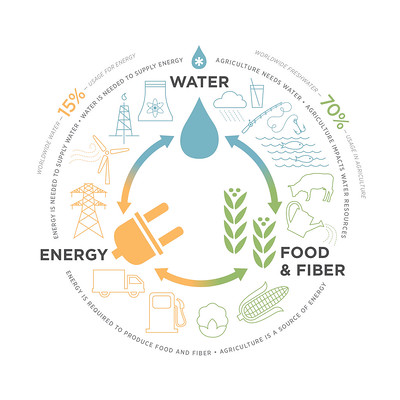Research Action Clusters (RACs)
Apply to create a RAC »The purpose of the Research Actions Clusters is to seed work that has the potential to transform undergraduate STEM education by leveraging the unique capacities of centers or a network of centers. Each selected RAC can apply for up to $15,000 for the activities of the RAC for one year, and may apply for additional funding in following years.
Current and Previously Funded RACs

Collaborative Around Research Experiences for Teachers (CARET)
A number of NSEC institutions are engaged in providing research experiences for undergraduates and graduate students pursuing careers in K-12 teaching. Limited research exists to demonstrate the generalizable impacts of these teacher research experiences (TREs) on teacher recruitment, preparation, and retention, as well as direct learning outcomes for participants, in part because of limited cohort sizes of individual programs. Impacts/measures for TREs are likely to overlap to a large extent with those for undergraduate research experiences. Identifying shared metrics for demonstrating the impacts of these related programs will enhance our ability to strengthen the case for implementation of opportunities for undergraduates to engage in research as a component of teacher recruitment and preparation. In addition, opportunities do not widely exist to bring together coordinators of teacher-researcher programs for sharing of programmatic goals and structures and/or developing collaborative research investigations into the impacts of these types of programs..

National Collaborative for Research on Food, Energy, and Water Education (NC-FEW)
We seek to advance a National Collaborative for Research on Food, Energy, and Water Education (NC-FEW) of transdisciplinary collaborators who span traditional STEM departments, education, and agricultural and natural resource sciences. Building upon early investments in a national NC-FEW planning committee in 2016-2017, we propose to convene a 2-day invited workshop in spring, 2018 that draws upon expertise from an expanded group of faculty representing 7 NSEC-associated centers and institutions of higher education. The primary deliverable of the workshop is an elaborated blueprint for capacity-building around NC-FEW, including a) growing the participant network and b) enhancing its impact, reflecting both short- and long-term goals of NC-FEW.

Building a DBER Community
Discipline-based Education Research (DBER) is a core mission of many STEM Education Centers. And, the programmatic and research activities of nearly all STEM Centers are informed by the large and growing body of DBER scholarship. To date, the individual disciplines have largely stayed separate, with separate conferences for physics, engineering, biology, chemistry, and mathematics education. We believe that there is tremendous advantage and synergy to be gained through the formation of a single, cohesive DBER community. The ultimate goal of this project is to set the foundation for the development of an interdisciplinary DBER community.
Inventory of Statewide or Regional STEM Networks

Across the United States, thousands of activities related to the advancement of STEM education, often in service to the development of a skilled STEM workforce and, ultimately, economic development, happen each and every day. While inventories of these enterprises have been conducted in the past, the focus of these inventories has been limited to specific audiences (e.g., university or industry driven networks), or a narrow set of variables. In short, the purpose of this effort is to develop a resource that analyzes the elements of existing networks, articulates the considerations for the development of a network, or summarizes the relative successes and challenges regarding development, maintenance, or sustainability, hence, avoiding inefficiencies in time, potential missed information, and missed opportunities to create potential effective partnerships.

RECCUSE
RECCUSE proposes collecting Survey of Teaching Beliefs and Practices for Undergraduates (STEP-U) survey data from STEM students and faculty members on four campuses, as well as conducting interviews with a subset of graduating seniors. These data will be used to design professional development workshops for faculty members to effect transformative changes in STEM teaching practice. Each institution will be an individual case study, with each Center cultivating departmental buy-in, adapting the surveys to their local context, collecting data, and designing local programming. All of these efforts will combine at the regional level, where the project partners will collectively design effective professional development modules for national dissemination. The proposed deliverables are 1) to create a regional collaborative of STEM Education Centers and Teaching and Learning Centers to discuss issues of common concern, conduct collaborative research, and develop new programs and 2) develop a model for data-driven faculty professional development that can be used to support changes in instructional practices towards greater use of evidence-based active learning approaches.

STEM Tutoring Centers
This RAC will provide resources in a central, readily accessible website for institutions who want to start a STEM tutoring program or increase the efficiency of their current efforts. This work will build on the resources of Alan Craig, a past president of NCLCA, who has gathered relevant references in a website, http://sites.pc.gsu.edu/acraig/ggc-presentation-872017/. The proposed deliverables are a "how-to" document outlining the steps to create a STEM tutoring center, a compendium of strategies to build bridges between the academic and student success communities, an analysis of metrics of mentoring cost-effectiveness, and more.
Change in Departments and Institutions via Active Learning RAC

The Change DIAL RAC will provide guidance on how STEM Education Centers can help enact and support institutional change to improve student success in the Precalculus to Calculus sequence (P2C2), with a particular emphasis on mathematics department-level factors. The Change DIAL RAC will hold a joint meeting with two current NSF projects: Student Engagement in Active Learning through an Institutional Network for Active Learning (SEMINAL) and the Progress through Calculus (PtC) along with 20+ mathematics departments and STEM Education Center directors. The purpose of this meeting, to be held May 29-31, 2019, in Lincoln, Nebraska, is to better understand what conditions, strategies, interventions and actions at the institutional, center, departmental and classroom levels contribute to the initiation, implementation, and institutional sustainability of improvement in the undergraduate P2C2 sequence across varied institutions.

